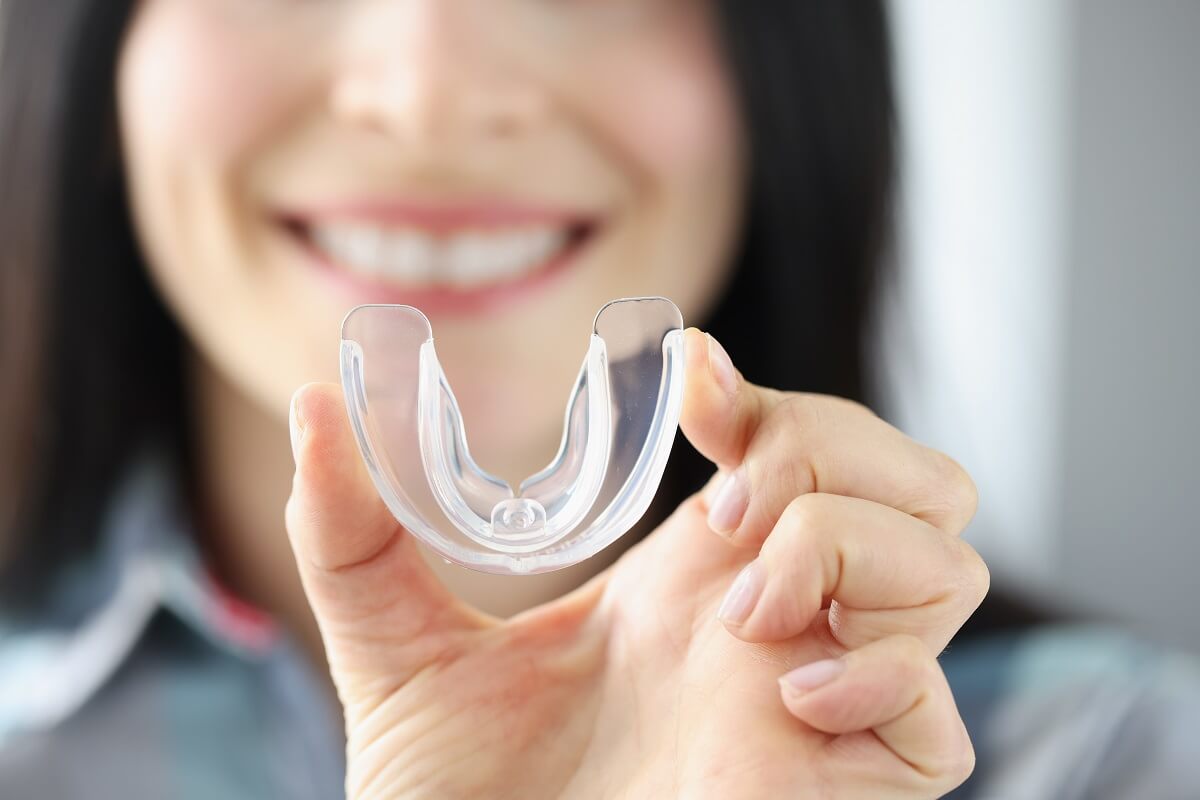Mouth guards are essential tools designed to protect our teeth during physical activities or from Bruxism. Many people wonder whether wearing them all day is safe or necessary. Here’s what you need to know about wearing a mouth guard for extended periods. If you have questions about acquiring a mouth guard near you, be sure to ask your dentist.
What is a Mouthguard?
A mouth guard is a protective device made of soft plastic that fits over your teeth. It is usually worn during sports protect your teeth from injury or at night to prevent unconscious grinding.
Pros and Cons of Wearing a Mouthguard
Wearing a mouth guard for extended periods has pros and cons:
Pros
- Protection: Wearing a mouth guard can protect your teeth from damage and prevent injuries during physical activities or sports.
- Comfort: Mouth guards provide relief to those with jaw pain or TMJ disorders.
- Prevention of teeth grinding: For those who suffer from Bruxism, wear a custom mouth guard for teeth grinding to prevent further teeth damage.
- Alignment: In some cases, wearing a mouth guard can help with jaw alignment and reduce stress on the jaw joint.
- Dental work protection: If you have dental appliances like braces, a mouth guard can protect them from damage.
Cons
- Discomfort: Wearing a mouth guard for long periods can cause discomfort, especially if it doesn’t fit properly.
- Speech difficulty: Some people may struggle to speak clearly with a mouth guard in place for an extended period.
- Dry mouth: Wearing a mouth guard all day can lead to a dry mouth, which may increase the risk of tooth decay.
When Is It Appropriate to Wear a Mouth Guard?
Here are some situations where wearing a mouth guard for an extended period might be necessary:
- Dental conditions: If you have certain dental conditions that require you to wear a mouth guard consistently, your dentist may recommend wearing it all day.
- Contact sports: Athletes involved in contact sports like boxing or martial arts may need to wear a mouth guard throughout the day to protect their teeth.
- Teeth clenching: If you are suffering from Bruxism (i.e. grinding and clenching teeth), wearing a mouth guard can help prevent damage to your teeth.
- Jaw pain (TMJ Disorders): A mouth guard can relieve pain and prevent further damage to the teeth.
- Post-dental procedures: After certain dental procedures, your dentist may advise you to wear a mouth guard all day to protect the treated area.
Alternatives to Wearing a Mouth Guard All Day
If wearing a mouth guard all day doesn’t work well for you, there are other options you can consider:
- Custom-fit guards: A dentist will design these to fit your teeth perfectly, offering adequate protection during sports.
- Behavioural changes: You can try some techniques to manage stress and exercise your jaw to reduce teeth grinding during the day.
- Orthodontic treatments: Dental appliances like braces or aligners can help resolve how your teeth line up, relieving pressure on your teeth and reducing the need for mouthguards.
- Regular dental check-ups: Visiting your dentist regularly can help detect and resolve dental problems early, so you may not need a mouth guard.
At the end of the day, it is important to consider your specific needs and consult a dental professional for guidance. Whether you choose to wear a mouth guards in Edina throughout the day or opt for alternatives, prioritizing your oral health and well-being is key.
Seek Dental Advice at Our Local Dental Office
At 44th Street Dental prioritizes personalized care and addresses each patient’s unique oral health needs. We utilize advanced technology for precise diagnosis and effective treatment. Our dentist in Edina promotes long-lasting relations with patients and considers each one an important member of our dental family. Consult your dentist today for personalized advice on managing bruxism and finding the right solution for your dental health needs.

